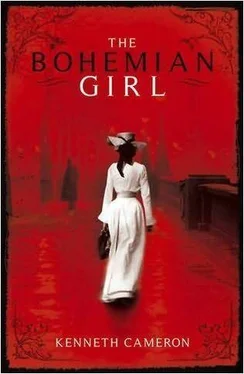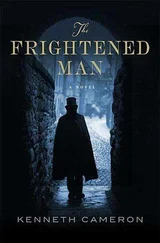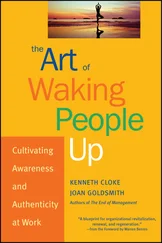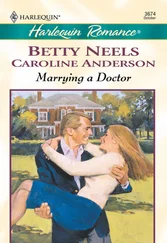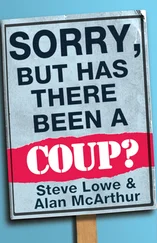Kenneth Cameron - The Bohemian Girl
Здесь есть возможность читать онлайн «Kenneth Cameron - The Bohemian Girl» весь текст электронной книги совершенно бесплатно (целиком полную версию без сокращений). В некоторых случаях можно слушать аудио, скачать через торрент в формате fb2 и присутствует краткое содержание. Год выпуска: 2010, Жанр: Детективная фантастика, на английском языке. Описание произведения, (предисловие) а так же отзывы посетителей доступны на портале библиотеки ЛибКат.
- Название:The Bohemian Girl
- Автор:
- Жанр:
- Год:2010
- ISBN:нет данных
- Рейтинг книги:5 / 5. Голосов: 1
-
Избранное:Добавить в избранное
- Отзывы:
-
Ваша оценка:
- 100
- 1
- 2
- 3
- 4
- 5
The Bohemian Girl: краткое содержание, описание и аннотация
Предлагаем к чтению аннотацию, описание, краткое содержание или предисловие (зависит от того, что написал сам автор книги «The Bohemian Girl»). Если вы не нашли необходимую информацию о книге — напишите в комментариях, мы постараемся отыскать её.
The Bohemian Girl — читать онлайн бесплатно полную книгу (весь текст) целиком
Ниже представлен текст книги, разбитый по страницам. Система сохранения места последней прочитанной страницы, позволяет с удобством читать онлайн бесплатно книгу «The Bohemian Girl», без необходимости каждый раз заново искать на чём Вы остановились. Поставьте закладку, и сможете в любой момент перейти на страницу, на которой закончили чтение.
Интервал:
Закладка:
‘Being tired isn’t the problem; it’s being slow. ’ They turned into Oxford Street. ‘You have shopping to do?’
‘I come to places like this to look. To see what I’m not missing, perhaps. Mrs Cohan is making curtains at the moment; I’m shopping for ideas.’
‘Which you won’t buy?’
‘She knows the remnant houses in the East End. We’ll go there when I know what I want. She has fantastic taste. One of her places has bolts of old Liberty silks and cashmeres, magnificent things that are out of fashion. I intend to surround myself with it.’
The shop windows were full of coronation goods, the coronation itself still almost two months off. They saw coronation chocolates, coronation cakes, the Coronation Tea Set with Spirit Lamp and Kettle, coronation platters and plates and bone china cups with portraits of the new king and queen. A coronation corset was being advertised.
‘The Socialists say that the coronation is a trick, a very large piece of advertising for capitalism and the Empire,’ she said.
‘What do you know about the Socialists?’
‘I go to the Reading Room. I read about everything! Because I know nothing, Denton — nothing! I’m as ignorant as that Irish girl, except I can write a ladylike hand.’
‘Atkins has got himself into the truss business. They’re going to call it the Coronation Model if they can get it ready in time.’
They stopped at a window where a portrait of the king was displayed on a carved easel and surrounded with velour draperies. She said, ‘A fairly common type in a whorehouse.’
‘Kings?’
‘Fat men with stinking cigar breath and plenty of money to pay people to do things that humiliate them.’
‘You don’t have respect for your new sovereign?’
‘None.’
They turned back at Oxford Circus. She said, ‘What would you think of my attending University College?’
‘If it’s what you want to do.’
‘I’m so ignorant. Truly, I don’t know anything. I might even take a degree. Would you mind?’
‘If you became learned? Of course not. A degree in what?’
She hesitated as if she feared his answer. ‘Economics,’ she said. ‘I so like having money.’ They both started laughing.
CHAPTER TWENTY-FOUR
April turned into May, May into June. Heseltine had been dead six months, Erasmus Himple even longer. Mary Thomason and Arthur Crum or whoever they were had vanished.
The Boer War stumbled to an end. Janet Striker moved into her house, with the Cohans to take care of her. Atkins’s vegetable garden produced baby lettuces and early peas and threatened courgettes. Denton rowed on the river every other day from a boathouse above Hammersmith Bridge. The first time, he had worn old trousers and a shirt without a collar but had been surprised to see that most of the men who were serious about it wore some costume of the sort Janet Striker had given him. They seemed unembarrassed by the mid-calf trousers and the collarless shirts, even by the little caps. They looked distinctly silly to him, but he had long since resigned himself to a culture in which the well-off wore different kinds of clothes for every activity and didn’t feel ridiculous in them. Thereafter, he carried his rowing clothes in a little satchel, changed in the boathouse with the rest and rowed in what he called ‘my funny duds’. Warmer weather proved their value: he sweated buckets — so much so that he had to buy two more outfits.
Usually, he rowed downriver, now and then as far as Battersea, then back up against the current, with or against the tide; if he felt strong, he went on past Hammersmith as far as Mortlake before turning back. He loved the pull of the oars, the feeling of power returning in his shoulders. He could lift a hundred pounds again, although only a few lifts without a rest as yet; he had gained back more than twenty of the lost pounds; when he walked, the bad leg had to be favoured but he put the stick aside; he rarely looked behind him any more, although he went on carrying the Colt in the street until the weather got too warm for heavy fabrics and overcoats, and then he carried the derringer, which was easier to hide in light clothes.
The bad leg seemed better when he rowed, delivering force to push the sliding seat back. The boat was not a rowing shell but a kind of long skiff, double-ended, narrow, the interior an intricate crossing of narrow planks and ribs every two inches, the whole thing varnished to a warm, glowing brown. He found himself holding his own with other rowers, knew that his long-postponed urge to row had been correct.
The coronation had been scheduled for 26 June. The city was brilliant with bunting; the newspapers were burbling with patriotism; a kind of hysteria had gripped people of all classes — the Socialists were right: the selling power of the coronation was enormous. Even the sweatshop workers saved to buy a Britannia-ware coronation spoon. There hadn’t been a coronation, after all, in sixty-some years.
On 24 June, the king had an attack of appendicitis. The coronation was put off.
As Denton passed through the city on what should have been the great day, he got a sense of vaguely nasty resentment. It was as if a child’s treat had been denied. The marketing of the crown had created a huge appetite whose denial led to tantrums. There seemed to be an unusual amount of bickering in the underground station. Men whose uniformly black business clothes had been brightened by patriotic colour in the buttonhole were funereal again. People scowled. Although it was the most beautiful day so far of a beautiful summer, the only comment Denton overheard was ‘What a day!’ It was not meant happily.
Changed into his ridiculous costume, he stood on the wooden ramp that sloped down to the water, momentarily leaning on the long, spoon-bladed oars. The water glittered. It was still hardly eight o’clock; the sun was not yet hot, and a soft breeze was blowing upstream, bringing with it what he thought was a smell of the sea. ‘What is so rare as a day in June?’ he muttered, then reminded himself that an American had written that.
He glanced around him, the habit still there, looking for the shadow that never grew solid — Jarrold was still in the institution in Devon, would always be so. The derringer had been left in the valise; a pistol out on the river seemed absurd. Standing in the sun in that glorious weather, he thought, I’m still afraid. He shook the idea off. There was no reason for anybody to follow him now. He was out of it — it was all a police matter now, and already an old one, at that.
The case was open, but Mary Thomason and Arthur Crum were gone. The old man at the Albany gate thought he might have seen somebody who looked like the drawings of Crum, but he couldn’t tell them more than that. Munro had got an exhumation order, despite Heseltine’s father’s anguish; the local coroner had found damage to the back of the skull ‘consistent with a blow or a fall’. But the trail, as Munro had said, was dead cold.
The boat, as always when he first got into it, felt like an uneasy eggshell, yet when he was seated it was secure enough that he could rock his hips and feel no loss of balance. He started downriver slowly, the incoming tide only a ripple against his bow.
What am I really afraid of?
Working his shoulders, he increased his power without upping his tempo; after turning around at Battersea, he raised the beat, his legs working, the boat seeming to fly over the water. On he went upstream, past Putney and Hammersmith and then, feeling glorious and strong and exultant in the day, past Mortlake.
There was bunting on houses and boats along the bank. It had been meant to be a holiday; some people were apparently going to make it one, anyway. A steam launch chugged past, flags flying, heading for Hampton Court; other rowing boats, always recalling water insects, darted back and forth. He went on up the river, his beat slower now, making himself a tourist looking at houses and boats and people, seeing himself as part of the spectacle.
Читать дальшеИнтервал:
Закладка:
Похожие книги на «The Bohemian Girl»
Представляем Вашему вниманию похожие книги на «The Bohemian Girl» списком для выбора. Мы отобрали схожую по названию и смыслу литературу в надежде предоставить читателям больше вариантов отыскать новые, интересные, ещё непрочитанные произведения.
Обсуждение, отзывы о книге «The Bohemian Girl» и просто собственные мнения читателей. Оставьте ваши комментарии, напишите, что Вы думаете о произведении, его смысле или главных героях. Укажите что конкретно понравилось, а что нет, и почему Вы так считаете.
